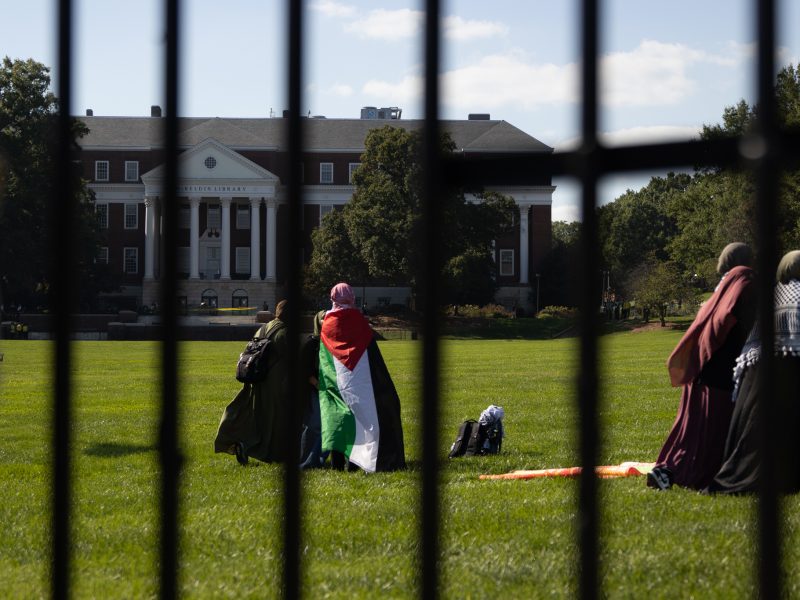The corporation operating the university’s only official graduate housing facility, Graduate Hills and Graduate Gardens is allowing students who have graduated to remain as residents – a violation of university policy.
Southern Management Company is currently allowing five alumni to remain residents in the complex, according to Jan Davidson, associate director of the Resident Life Department. Pamela Martin, Southern Management’s director of community relations, says one of those residents graduated in 1991.
The operating agreement between the university and Southern Management states that an individual who has graduated from the university is considered a “qualified resident,” but “only for a period of 45 days next following the date on which the degree was granted.”
During an on-going housing crisis among graduate students, the practice has led Graduate Student Government President Laura Moore to become increasingly concerned with Southern Management Company’s “poor stewardship” of the apartment complexes.
Moore says providing the alumni with graduate housing not only violates the university’s policy, but it demonstrates Southern Management is more interested in its financial earnings than the general well-being of graduate students. Residents who have graduated are charged non-student rates, which range from $174 to $235 more per month depending on the size of the apartment.
“The [non-students] are paying the higher rent, so Southern Management essentially has a financial incentive to not enforce it,” Moore said.
Martin calls the language “non-specific” and says the company has asked the university to alert them to any problems they may have with the residents’ arrangements.
But Resident Life says providing alumni residency is not a violation of university policy.
“The lease is what rules and governs,” said Davidson. “The operating agreement is between the university and Southern Management. We don’t have a significant issue with the number of non-grad students on the property, or the way Southern Management is operating.”
Aalap Kohojkar, a second-year graduate student in information management, has been on the Graduate Hills and Gardens waiting list for four months. He says despite housing only a few non-students in the complex, Southern Management should be enforcing a policy to limit how long graduates can remain residents, especially during a growing student housing shortage.
“Every spot counts, and I really don’t know how close I am to getting in,” said Kohojkar. “I have never been updated regarding where I am on the waiting list, or what my chances are, or how soon I will be notified. I really doubt they would entertain that kind of conversation.”
Kohojkar submitted an online application along with the mandatory $100 holding fee in December, but he was informed later that although his payment was received, his application was not.
“The woman working at the complex said there was a glitch in the system, and eventually I got on the list at the end of February,” he said. “That was kind of senseless. They did not have a logical explanation.”
Derek Juba, the president of the Graduate Gardens and Graduate Hills Tenants’ Association and resident of the complex, said while the operating agreement should be respected, its potential violation has no effect on the graduate housing crisis.
“This is almost a non-issue,” he said. “You know, three out of hundreds of grad students is just insignificant I think.”
However, Juba agrees that Southern Management, which has been managing the apartment complex since 1994, is operating more as a “for-profit” housing complex rather than providing student-friendly living accommodations.
Juba says there are frequent rent increases, to the detriment of those residents who are in the middle of their leases and cannot afford higher rates. A rent increase is due to take effect next month, raising two-bedroom rates by 5.43 percent, one-bedrooms by 2.23 percent, and efficiencies by 10.23 percent.
Juba also said that the minimum graduate student stipend is being raised only 4.55 percent for the fiscal year of 2008.
Rather than making sure the operating agreement is enforced, Juba believes the university should focus on building more housing for graduate students.
Moore, however, believes both matters can be addressed.
“The two things are not mutually exclusive,” Moore said. “The university has to provide some sort of checks and balances.”
Contact reporter Lindsay Kalter at newsdesk@dbk.umd.edu.


